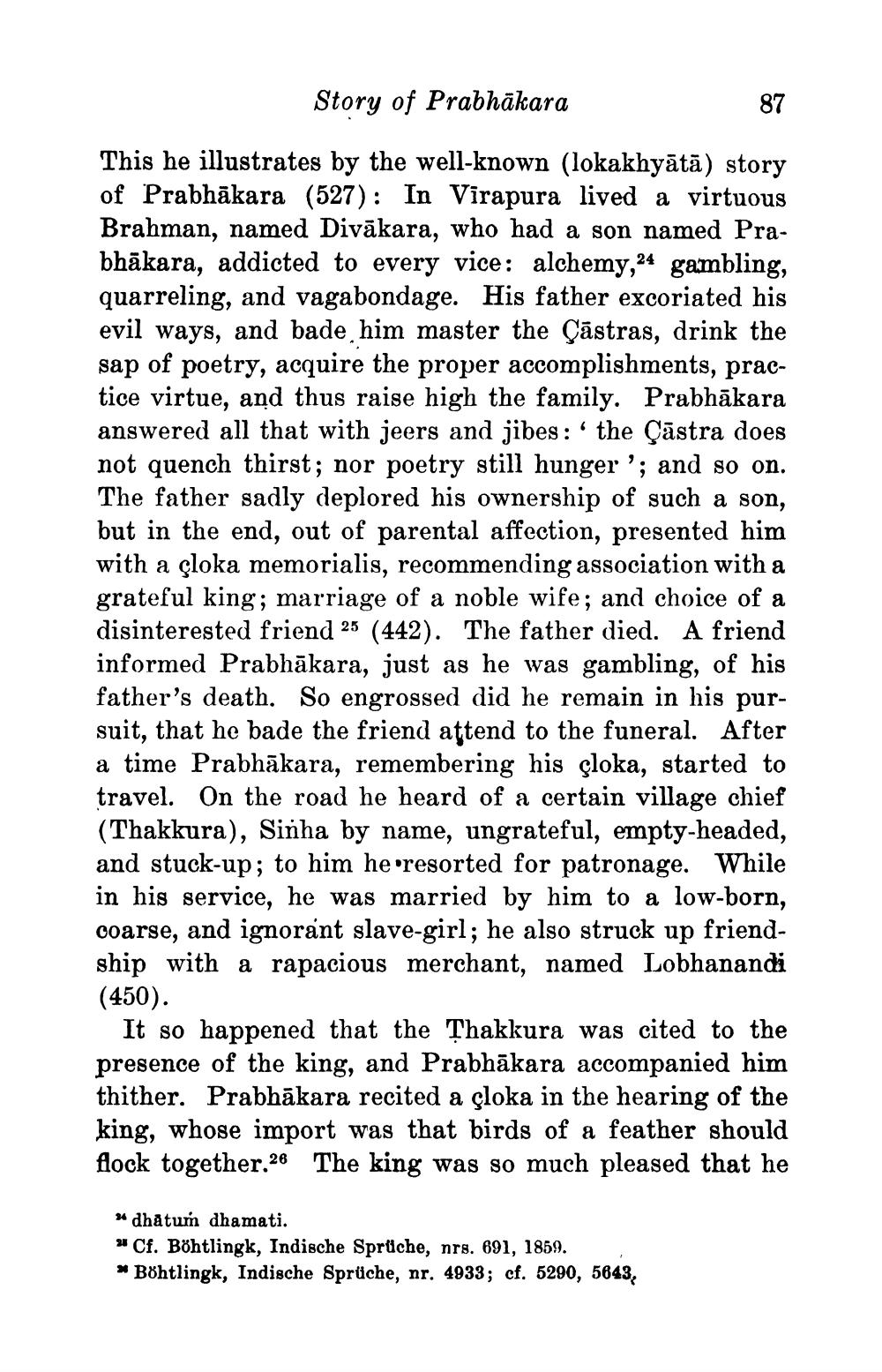________________
Story of Prabhākara
87
This he illustrates by the well-known (lokakhyātā) story of Prabhākara (527): In Virapura lived a virtuous Brahman, named Divākara, who had a son named Prabhākara, addicted to every vice: alchemy,24 gambling, quarreling, and vagabondage. His father excoriated his evil ways, and bade him master the Çāstras, drink the sap of poetry, acquire the proper accomplishments, practice virtue, and thus raise high the family. Prabhākara answered all that with jeers and jibes: the Çāstra does not quench thirst; nor poetry still hunger '; and so on. The father sadly deplored his ownership of such a son, but in the end, out of parental affection, presented him with a çloka memorialis, recommending association with a grateful king; marriage of a noble wife; and choice of a disinterested friend 25 (442). The father died. A friend informed Prabhākara, just as he was gambling, of his father's death. So engrossed did he remain in his pursuit, that he bade the friend attend to the funeral. After a time Prabhākara, remembering his çloka, started to travel. On the road he heard of a certain village chief (Thakkura), Sinha by name, ungrateful, empty-headed, and stuck-up; to him heöresorted for patronage. While in his service, he was married by him to a low-born, coarse, and ignorant slave-girl; he also struck up friendship with a rapacious merchant, named Lobhanandi (450).
It so happened that the Thakkura was cited to the presence of the king, and Prabhākara accompanied him thither. Prabhākara recited a cloka in the hearing of the king, whose import was that birds of a feather should flock together.26 The king was so much pleased that he
* dhatum dhamati. "Cf. Böhtlingk, Indische Sprüche, nrs. 691, 1859. * Bohtlingk, Indische Sprüche, nr. 4933; cf. 5290, 5043,




